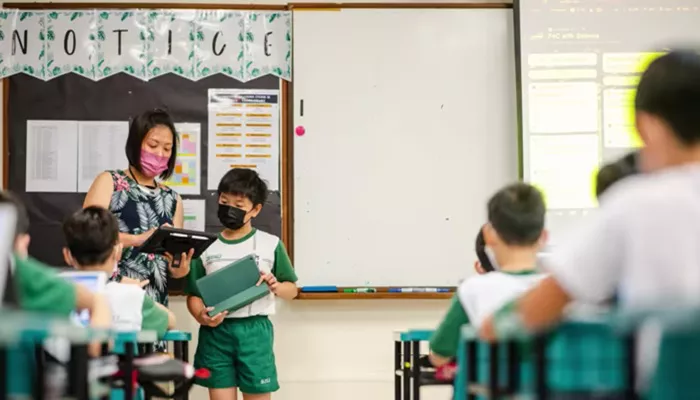SINGAPORE: Education Minister Chan Chun Sing assured on Wednesday (Aug 21) that the newly revamped Gifted Education Programme (GEP) will ease, not increase, teachers’ workloads.
Chan explained that addressing the specific needs of students under the new system will actually simplify teaching. “In the past, not catering to students’ individual needs made teaching more challenging,” he said. “By identifying students based on their abilities, teachers can focus their efforts more effectively, which is often overlooked.”
He also emphasized that parents should select schools based on their child’s strengths and interests, rather than merely considering if a school is deemed “good.” This has been a point of debate for years.
Chan’s remarks came after Prime Minister Lawrence Wong’s National Day Rally speech, where Wong announced a major overhaul of the GEP. The GEP, introduced in 1984 for intellectually gifted students, will be replaced by high-ability programmes available in all primary schools starting with this year’s Primary 1 cohort.
Previously, students were identified for the GEP through a two-stage process in Primary 3. Selected students joined the programme in Primary 4, with only nine primary schools offering it. The programme accepted about 1 percent of the cohort, roughly 400 to 500 students annually.
Under the new model, school-based programmes for high-ability students will expand to about 10 percent of the cohort, or 3,000 students. All primary schools will now have such programmes to nurture students with specific strengths in subjects like English, mathematics, and science. Currently, about 7 percent of the cohort is part of these programmes.
Chan addressed concerns about teacher workload, noting that ongoing training and logistical support are key to reducing their administrative burdens. “While this is manageable, there’s another crucial aspect,” he added.
He explained that targeted grouping of students allows teachers to focus their instruction more effectively. “We aim to mix students of varying abilities in classes for social and emotional development. However, teachers should not be overwhelmed by catering to a wide range of abilities,” Chan said.
He criticized the previous system for forcing teachers to “teach to the average,” which limits the effectiveness of instruction. Before revamping the GEP, the Ministry of Education consulted teachers, parents, and GEP alumni to gather feedback and address the need for developing specific talents beyond general abilities.
The new model aims to offer a customized approach, allowing students to focus on their strengths in specific areas. For instance, a student strong in English but weak in Mathematics may join the high-ability English programme at their school. As their talents become more evident, they might then be identified for specialized after-school modules in English by Primary 5.


